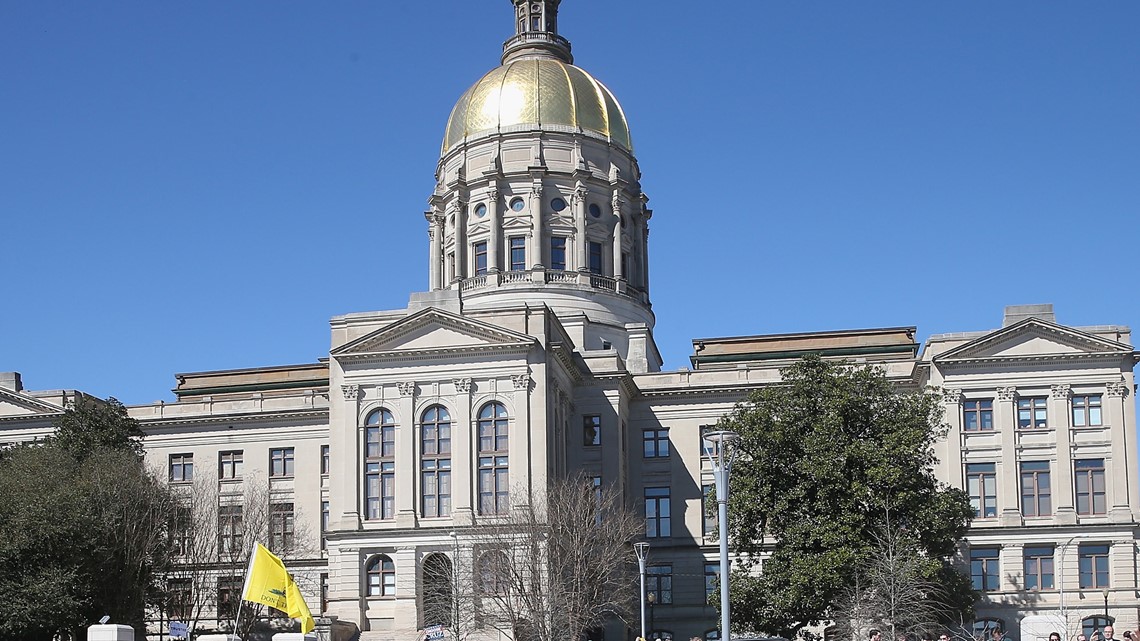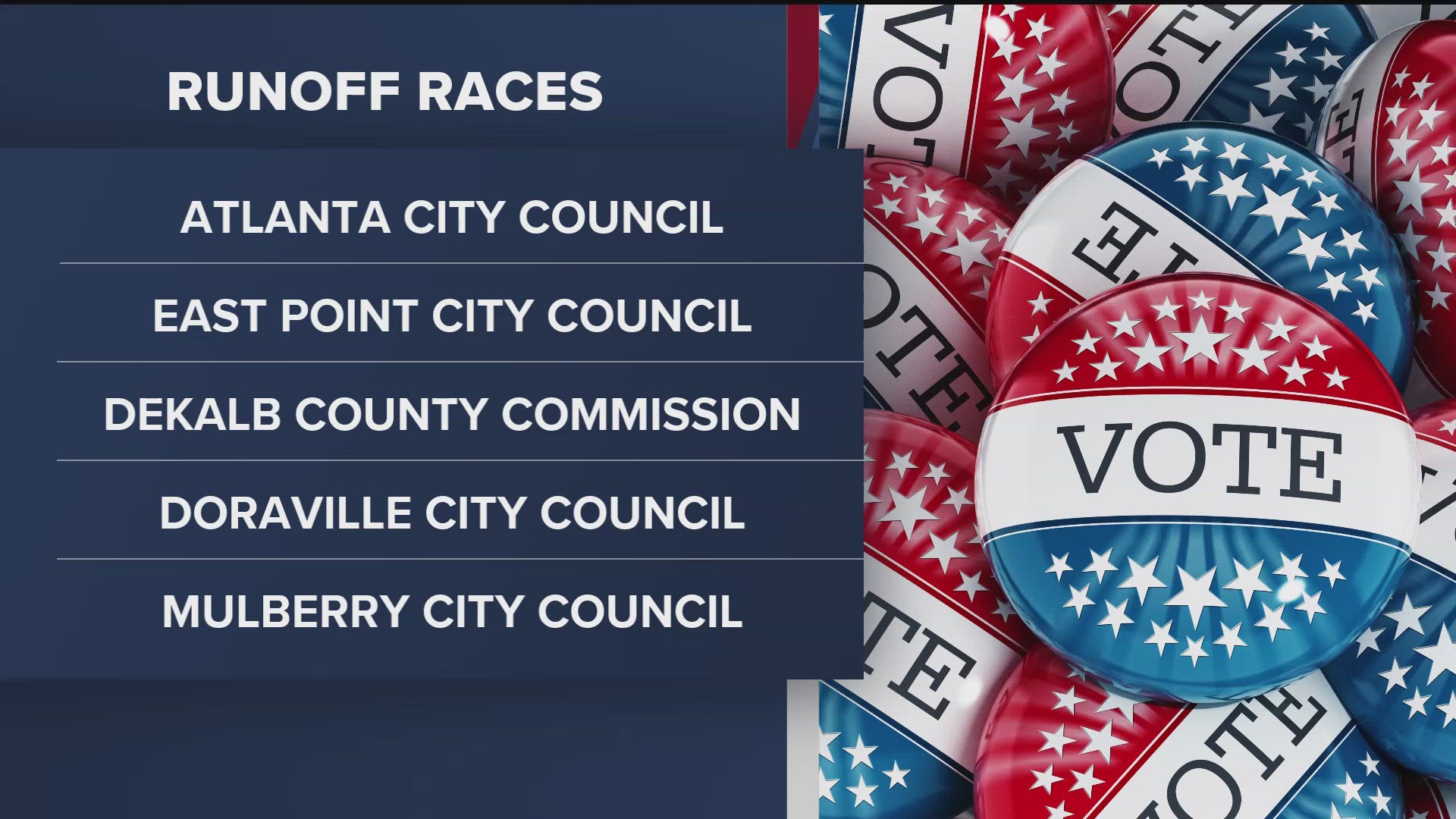Each year, on July 1, new state laws and amendments passed by the General Assembly go into effect, and this year is no exception.
Of course, the big one that people are concerned with is the Hands-Free Law that governs cellphone use by motorists, but it is not the only new law that will go into effect on Sunday.
A new law - HB 65 - will expand the legal use of medical marijuana in Georgia to include those suffering from Post-Traumatic Stress Disorder (PTSD) and "intractable pain."
The law specifically defines 'intractable pain' as being "pain that has a cause that cannot be removed and for which, according to generally accepted medical practice, the full range of pain management has been used for at least six months without adequate results or with intolerable side effects."
Georgia's first medical marijuana bill was passed by the General Assembly in 2015 and covers more than 15 other medical conditions. Anyone who falls in those categories may apply for a low THC oil registry card, which permits qualified people to have up to 20 fluid ounces of low THC oil, which is derived from the cannabis plant.
Georgia's law is far more limited than other states like Colorado and California, in that it does not legalize the sale or possession of marijuana in leaf form. Retail establishments in the state of Georgia are not permitted to sell marijuana or items produced from the cannabis plant. Physicians in Georgia are not permitted to prescribe marijuana for medical purposes as they are in some other states.
To apply for the registry card, an application is sent by the physician treating the patient. There are two forms tied to the application, including a waiver form signed by the applicant and the physician, then a physician certification form which is submitted to the state.
Once approved, patients are contacted by the Georgia Department of Public Health (DPH) to determine which of the state DPH offices is most convenient for picking up the card. The fee for a new card is $25, and is valid for 2 years following the date of issue.


The state does not regulate or provide information where individuals can purchase low THC oil. The law only creates a means so that qualified people are not prosecuted if they have it in their possession.
Full-scale sales of marijuana remain illegal in the state of Georgia.
SB 17, the so-called "Mimosa Bill," allows restaurants to serve alcohol on Sundays beginning at 11 a.m. instead of at 12:30 p.m. However, it does not permit retail establishments to begin over-the-counter sales of alcohol until 12:30 p.m. on Sundays.
HB 732 takes effect with the goal of expanding the definition of and punishment for sex trafficking and setting mandatory sentencing guidelines.
HB 779 revises the duties of the director of the Georgia Emergency Management and Homeland Security Agency and provides for the creation of the Board of Homeland Security.
The state is establishing the Board with the goal of setting up an appropriate infrastructure to manage function in the event of a radiological or biological terror attack in the state of Georgia.
HB 751 enacts the Georgia Emergency Communications Authority, which relates to public utilities and public transportation. Overall state management of 911 functions are being transferred from GEMA to the new agency.
This will also result in a change in how and where the 911 charge assessed to local telephone subscribers is administered.
Once the new law is enacted on July 1, the 911 charge will be administered under the new GECA. Georgia's 911 Advisory Committee, which had previously administered this function, will be abolished.
HB 890 will make it a misdemeanor for someone to use an emergency exit after they have shoplifted an item in a store.
HB 513 provides for signage to be placed at hospitals and other medical facilities to indicate that a newborn child may be left there by a mother who does not want to keep it without criminal prosecution or penalty.
HB 718 allows for up to five days excused absences per school year for grade school students whose parent or guardian is in on leave from overseas deployment with the Armed Forces or National Guard.
HB 419 allows local counties and municipalities in Georgia to further regulate fireworks beyond their present level, so that if there is an issue with noise or a concern with drought conditions, that fireworks may be limited or even curtailed entirely.
HB 809 establishes requirements and guidelines for markings for any vehicle used by the Georgia State Patrol when they stop motorists.
The new law requires all such GSP motor vehicles to be painted in a solid color or in a two-tone uniform color described as follows: The "hood, top, and the top area not to exceed 12 inches below the bottom of the window opening thereof shall be a light gray color and the remaining portion of said motor vehicle shall be painted a dark blue color."
Additionally, the law requires "that any such motor vehicle shall be distinctly marked on each side and the back thereof with the wording 'State Patrol' in letters not less than six inches in height of a contrasting color from the background color of the motor vehicle."
It also says that it requires, "that any such motor vehicle be equipped with at least one lamp which when lighted shall display a flashing or revolving colored light visible under normal atmospheric conditions for a distance of 500 feet from the front and rear of such vehicle."
Sign up for The Speed Feed newsletter below to get the latest headlines in your inbox each weekday! (App users click here)



